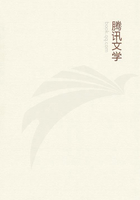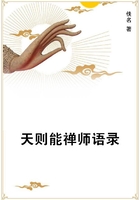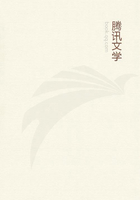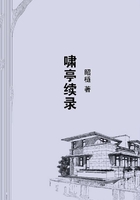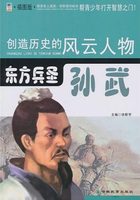ALTHOUGH my father had long since renounced the copyright in all his works written after 1883, and although, after having made all his real estate over to his children, he had, as a matter of fact, no property left, still he could not but be aware that his life was far from corresponding to his principles, and this consciousness perpetually preyed upon his mind. One has only to read some of his posthumous works attentively to see that the idea of leaving home and radically altering his whole way of life had presented itself to him long since and was a continual temptation to him.
This was the cherished dream that always allured him, but which he did not think himself justified in putting into practice.
The life of the Christian must be a "reasonable and happy life IN ALL POSSIBLE CIRCUMSTANCES," he used to say as he struggled with the temptation to go away, and gave up his own soul for others.
I remember reading in Gusef's memoirs how my father once, in conversation with Gusoryof, the peasant, who had made up his mind to leave his home for religious reasons, said, "My life is a hundred thousand times more loathsome than yours, but yet I cannot leave it."
I shall not enumerate all the letters of abuse and amazement which my father received from all sides, upbraiding him with luxury, with inconsistency, and even with torturing his peasants.
It is easy to imagine what an impression they made on him.
He said there was good reason to revile him; he called their abuse "a bath for the soul," but internally he suffered from the "bath," and saw no way out of his difficulties. He bore his cross, and it was in this self-renunciation that his power consisted, though many either could not or would not understand it. He alone, despite all those about him, knew that this cross was laid on him not of man, but of God; and while he was strong, he loved his burden and shared it with none.
Just as thirty years before he had been haunted by the temptation to suicide, so now he struggled with a new and more powerful temptation, that of flight.
A few days before he left Yasnaya he called on Marya Alexandrovna Schmidt at Ovsyanniki and confessed to her that he wanted to go away.
The old lady held up her hands in horror and said:
"Gracious Heavens, Lyoff Nikolaievich, have you come to such a pitch of weakness?"
When I learned, on October 28, 1910, that my father had left Yasnaya, the same idea occurred to me, and I even put it into words in a letter I sent to him at Shamerdino by my sister Sasha.
I did not know at the time about certain circumstances which have since made a great deal clear to me that was obscure before.
From the moment of my father's death till now I have been racking my brains to discover what could have given him the impulse to take that last step. What power could compel him to yield in the struggle in which he had held firmly and tenaciously for many years? What was the last drop, the last grain of sand that turned the scales, and sent him forth to search for a new life on the very edge of the grave?
Could he really have fled from home because the wife that he had lived with for forty-eight years had developed neurasthenia and at one time showed certain abnormalities characteristic of that malady? Was that like the man who so loved his fellows and so well knew the human heart? Or did he suddenly desire, when he was eighty-three, and weak and helpless, to realize the idea of a pilgrim's life?
If so, why did he take my sister Sasha and Dr. Makowicki with him? He could not but know that in their company he would be just as well provided with all the necessaries of life as he would have been at Yasnaya Polyana. It would have been the most palpable self-deception.
Knowing my father as I did, I felt that the question of his flight was not so simple as it seemed to others, and the problem lay long unsolved before me until it was suddenly made clear by the will that he left behind him.
I remember how, after N. S. Leskof's death, my father read me his posthumous instructions with regard to a pauper funeral, with no speeches at the grave, and so on, and how the idea of writing his own will then came into his head for the first time.
His first will was written in his diary, on March 27, 1895. [27]
[27] Five weeks after Leskof's death.
The fourth paragraph, to which I wish to call particular attention, contains a request to his next of kin to transfer the right of publishing his writings to society at large, or, in other words, to renounce the copyright of them.
"But I only request it, and do not direct it. It is a good thing to do. And it will be good for you to do it; but if you do not do it, that is your affair. It means that you are not yet ready to do it. The fact that my writings have been bought and sold during these last ten years has been the most painful thing in my whole life to me."
Three copies were made of this will, and they were kept by my sister Masha, my brother Sergei, and Tchertkof.
I knew of its existence, but I never saw it till after my father's death, and I never inquired of anybody about the details.
I knew my father's views about copyright, and no will of his could have added anything to what I knew. I knew, moreover, that this will was not properly executed according to the forms of law, and personally I was glad of that, for I saw in it another proof of my father's confidence in his family. I need hardly add that I never doubted that my father's wishes would be carried out.
My sister Masha, with whom I once had a conversation on the subject, was of the same opinion.
In 1909 my father stayed with Mr. Tchertkof at Krekshin, and there for the first time he wrote a formal will, attested by the signature of witnesses. How this will came to be written I do not know, and I do not intend to discuss it. It afterward appeared that it also was imperfect from a legal point of view, and in October, 1909, it had all to be done again.
As to the writing of the third we are fully informed by Mr. F.
Strakhof in an article which he published in the St. Petersburg "Gazette" on November 6, 1911.

